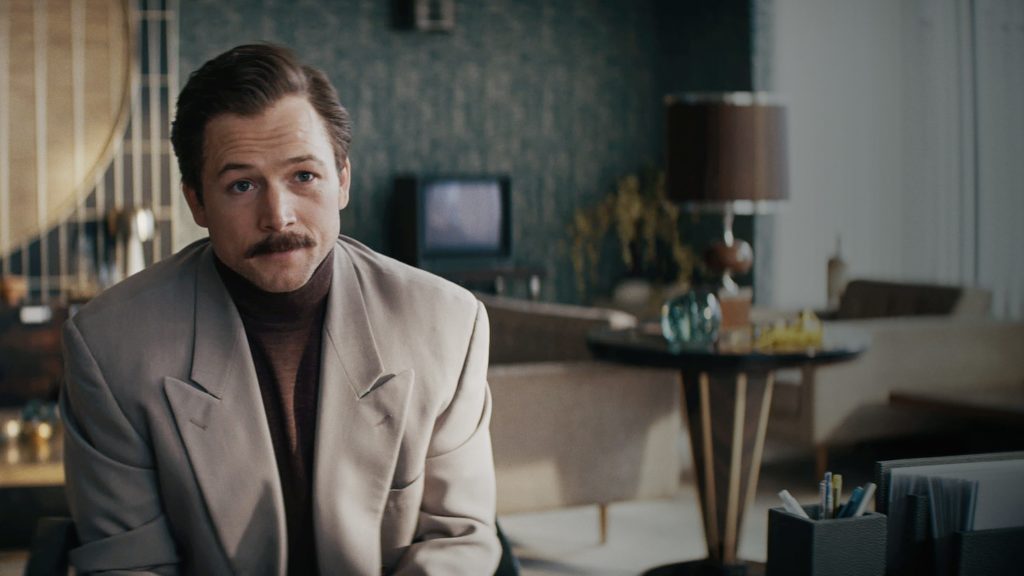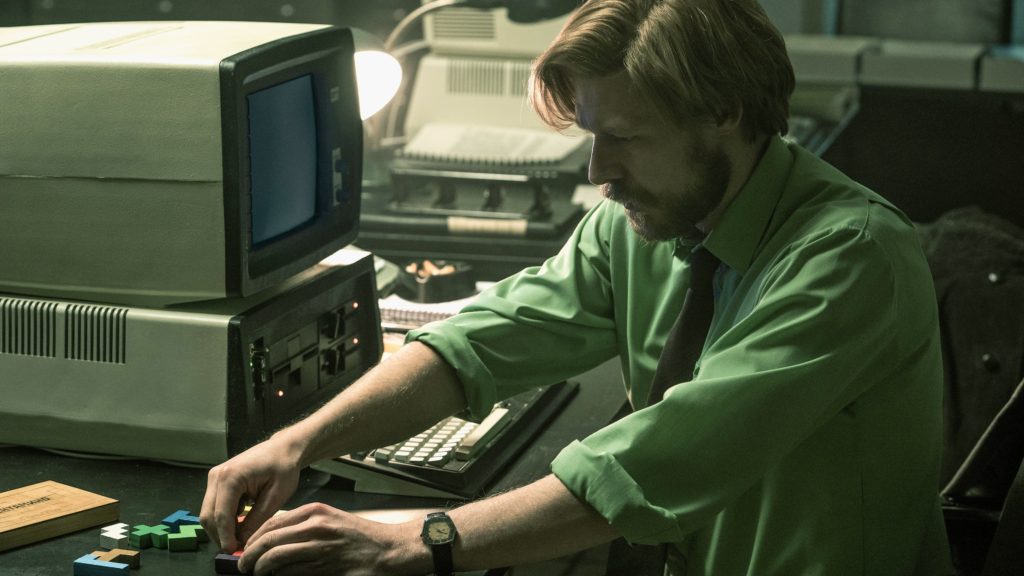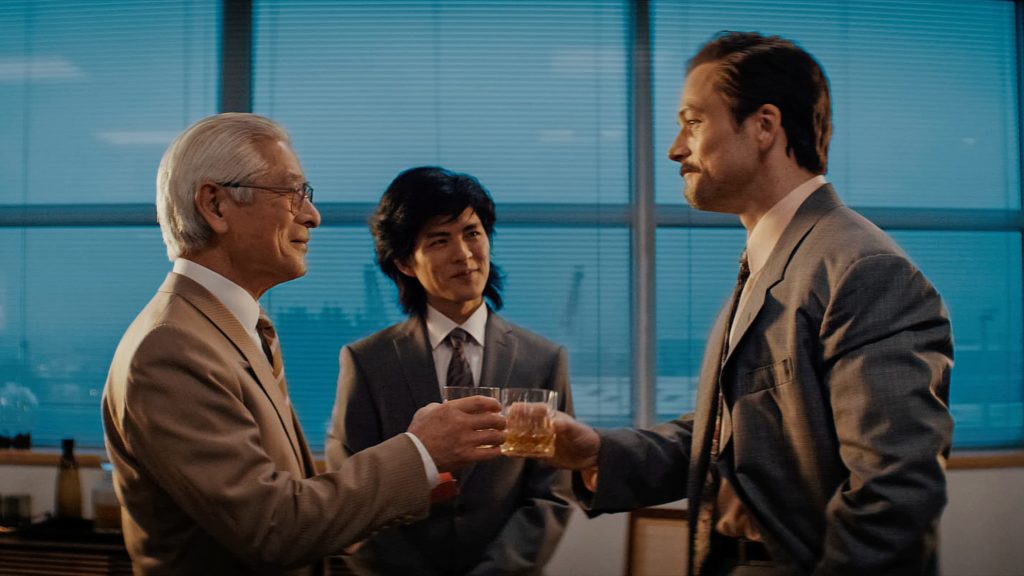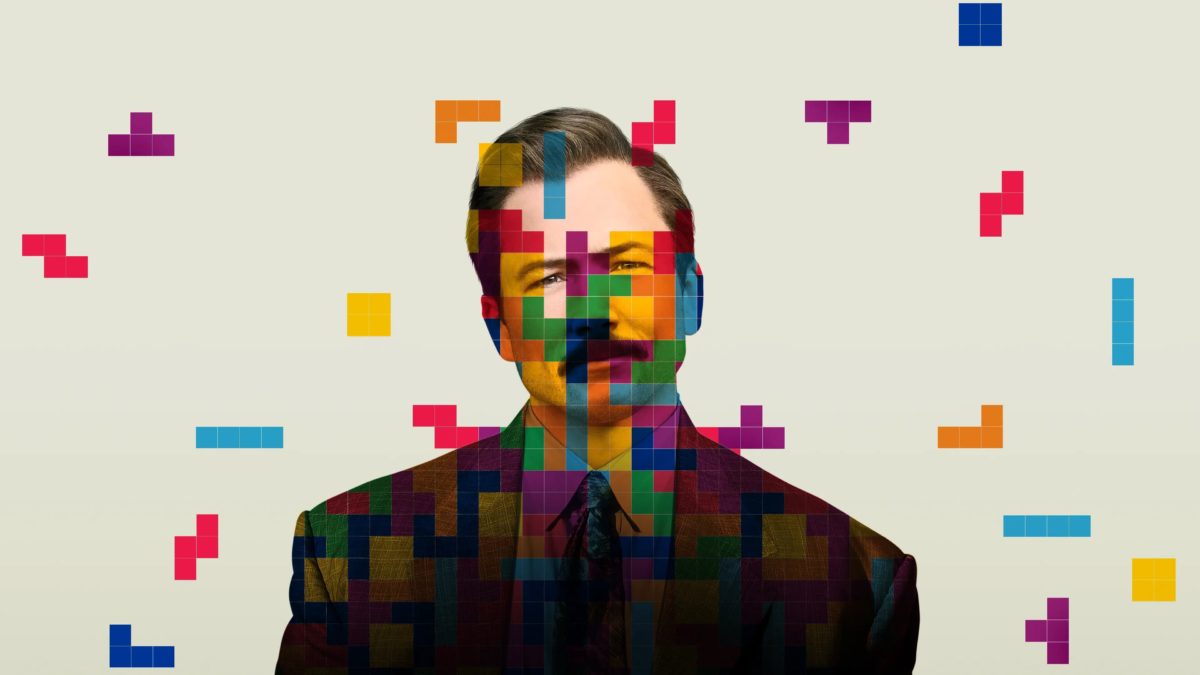Soviets do what Nintendon't
You’ve played Tetris. Your grandma has played Tetris. My uncle, for the last 15 years of his life, had a Game Boy on his shelf that only ever had the Tetris cart in it. (Some people wind down in the evening by reading; he did so aligning falling tetrominoes.) It’s the game that’s been ported to every console ever made, the most elegant piece of design in the half century that video games have existed.
But it’s also a purely abstract creation — part of the reason it’s so appealing — so it has even less of a basis to be adapted to a feature length film than, e.g., Super Mario Bros. It’s like if they tried to make a movie based on Lego bricks. Wait, bad example.

So how the hell did they make a movie “based on” Tetris? The answer, of course, is that it’s not really based on the game, though it does occasionally apply some aesthetic flourishes to make you think of the Game Boy’s blocky, 160×144 pixel display. Instead, Tetris is a business thriller-slash-biopic about the quest to secure the rights to distribute the game outside of the USSR where it was invented.
The film follows Henk Rogers (Taron Egerton), a scrappy game developer and marketer, as he uses all of his capitalistic vigor to get a contract to license the game — first, on console; later, as the flagstone tie-in game for Nintendo’s buzzy new handheld game system, the Game Boy. Rogers correctly sees both the specific appeal of the game Tetris and the general appeal of video games writ large: he predicts 10 million people could buy a Game Boy when other characters estimate closer to 1 million. But Rogers was off, too: Nintendo ultimately shipped more than 100 million Game Boys (plus another 80 million of its follow-up, the Game Boy Advance).

The plot is surprisingly complicated, with about five competing business forces at any one time: Rogers is the American hero. Robert Stein (Toby Jones) is the sniveling backstabber. Billionaire father-son duo Robert Maxwell (Roger Allam) and Kevin Maxwell (Anthony Boyle) are constantly trying to use their rich-people influence to snag the Tetris deal. Various Soviets, including Valentin Trifonov (Igor Grabuzov) and Nikolai Belikov (Oleg Shtefanko), try to push the deal one way or the other for various nationalist and/or selfish reasons. And always lingering on the side, the wildcard everybody’s forgotten about, is the game’s creator, Alexy Pajitnov (Nikita Efremov), who hasn’t pocketed a dime from his invention. The cast is overall terrific; Egerton is very charismatic, and the ensemble full of character actors really delights.
Rogers spends much of the movie in the Soviet Union knocking on doors of scary buildings with fatalistic designs that simply scream “1990s depiction of Soviet communism as a force of dehumanizing evil.” On that note, the film’s obsession with communism vs. capitalism is a prominent and peculiar theme. (The end credits is a Pet Shop Boys “Opportunities” Tetris theme remix, emphasizing the line “let’s make lots of money!”) I get the sense that director Jon S. Baird and writer Noah Pink are thumbing their nose at Russia without thinking too much about the politics except as a story element. Or maybe the Reagan-era anti-Soviet propaganda they grew up with really left an impact.

Regardless, it’s all a bit punchy and pulpy. If anything, it’s a bit too punchy and pulpy. A late car chase (cleverly shot to resemble falling Tetris blocks) strains credulity after the preceding 80 minutes had been totally action-free, and the plot moves so fast that some of the backstabs and pivots and gambits lose impact. But it’s fun and has a sense of giddiness to it. Nobody will put it on their best-of-the-year lists, but at a minimum it’s my favorite video game adaptation of the year so far, if you count it as such.
Is It Good?
Good (5/8)
Dan is the founder and head critic of The Goods. Follow Dan on Letterboxd. Join the Discord for updates and discussion.

